Social Work COVID-19 expert tips and resources
Experts within the Wayne State University School of Social Work have come together to provide support to our community during the COVID-19 pandemic. We have published the following COVID-19 related tip sheets with resources for social work professionals, allied health and criminal/legal professionals and the public. We have additional resources in the pipeline and will post as available. Please share these widely.
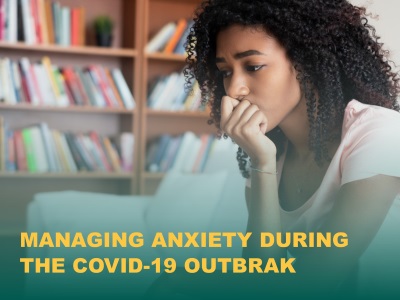
COVID-19 continues to spread, and efforts to contain it have led to profound disruptions in many of our lives. For students of all ages in-person classes have been canceled, teachers are asked to transfer their teaching to on-line platforms, schools and businesses are closing, and we are instructed to engage in "social distancing" to prevent the transmission of the virus. This potential threat about which we have limited information, rapidly changing and disrupted routines, along with distance or the threat of distance from loved ones are the types of situations that easily contribute to many of us experiencing anxiety. According to Wayne State University School of Social Work Associate Professor Suzanne Brown and Part-time Faculty Caitlin Brown those who struggle with anxiety even before these recent circumstances the current environment can certainly make that worse. Learn more

According to Wayne State University Assistant Professor Kristina Nikolova, for some children, home is not a safe place. The coronavirus is exacerbating some of the biggest risk factors for child abuse and neglect: domestic violence, financial stress, and social isolation. The closure of schools and other child-friendly public places removes children from contact with teachers, coaches, and others who can catch initial concerns about families under stress and refer them for help. Added to the extended amount of time children and caregivers are in constant contact with each other in a limited amount of space and conflicts can arise. Learn more

Fathering
Looking for ways to take care of your kids during this challenging time without pulling your hair out? Wayne State School of Social Work Associate Professor Carolyn Dayton has compiled the following helpful tips and resources for fathering during this challenging time. Learn more
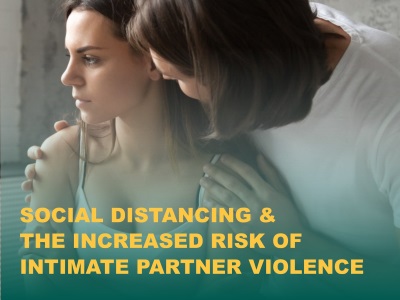
Intimate partner violence impacts millions of Americans. Periods of social isolation, including that caused by the current COVID-19 pandemic, increase the risk and severity of intimate partner violence. IVP is the physical, sexual, psychological, or financial abuse that can occur in a current or former intimate relationship. It can be a one-time event or a pervasive series of events that worsen over time. According to Wayne State University Social Work Assistant Professor Kristina Nikolova, perpetrators might even use the fear of the coronavirus as another means of controlling victims, such as by threatening to throw them out of the home in a time of crisis, or by further isolating them from friends and family. Learn more
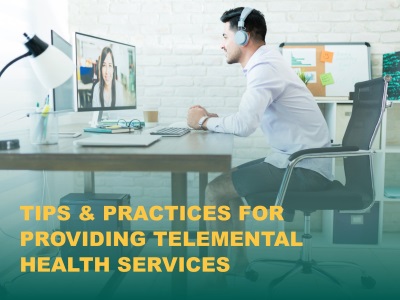
As essential workers, social workers are doing their very best to provide caring services to their clientele during the COVID-19 pandemic. For many, it means working in new ways with telemental health by phone or video conference. The Wayne State University School of Social Work wants to help you with the transition and our expert faculty, Associate Professor Suzanne Brown and Associate Professor Faith Hopp, have compiled the following list of tips and practices for you to consider as you begin working in this new environment. Learn more
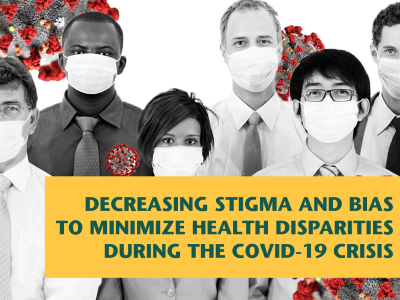
In light of the current COVID-19 crisis, the Center for Behavioral Health and Justice (CBHJ) recognizes that this pandemic may exacerbate existing social, racial, and health disparities. This may be true for justice-involved individuals, especially those who are part of marginalized populations such as; African American/Black, Asian, Arab/Chaldean, Indigenous, Latinx, immigrant and low-income communities; people with disabilities and special health needs; and older adults. As such, the CBHJ is sharing information and recommendations from local, national, and global organizations related to the minimization of stigmas and biases during this crisis. Learn more

In light of the current COVID-19 crisis, the CBHJ recognizes that availability of and access to substance use treatment, including discharge planning and connection to community-based services, may decrease or be temporarily eliminated. As such, the CBHJ has compiled recommendations and information relating to medications for opioid use disorder for those who remain confined and continuity of care as individuals with opioid use disorder are released during this crisis and transition from jail into the community. Learn more

Remote technologies in jails and prisons
In light of the current COVID-19 crisis, CBHJ recognizes that availability of and access to jail-based behavioral health services and discharge planning or connection to community-based services may decrease or be temporarily eliminated. At the same time, the acuity of mental health and substance misuse concerns among detainees is likely to rise. Strategies to maintain services within the jail and facilitate community discharge can be enhanced by the use of technology (e.g. phone or internet) between the jail and community providers. As such, the CBHJ has compiled recommendations and information relating to telehealth and technology to address gaps in service delivery. Learn more
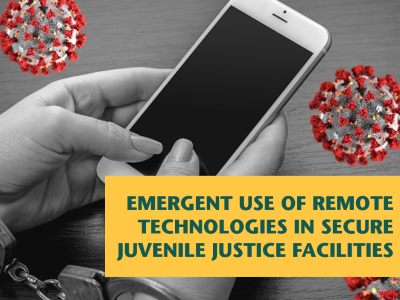
Remote technologies in juvenile justice facilities
In light of the current COVID-19 crisis, the CBHJ recognizes that availability of and access to family and loved ones may decrease or be temporarily suspended. The change in programming may impact educational and recreational programs, mental health and substance misuse services and discharge planning (or connection to community-based services) that may have been provided by outside volunteers or service providers. At the same time, the acuity of physical and mental health issues is likely to rise. Strategies to maintain services within the facility and to maintain connections to family and courts can be enhanced by the use of technology (phone, internet) between the facility and community providers. Learn more